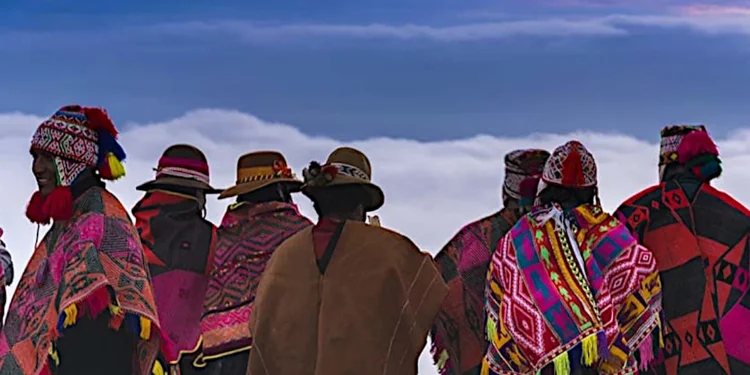Inca proverbs, passed down through generations, are more than just sayings. They are expressions of the Inca worldview, a legacy of profound teachings that have transcended time. In a world where the fast pace often disconnects us from the roots of our existence, these proverbs invite us to reflect on universal values such as ethics, community work, and our connection to nature.
Today, we explore 5 Inca proverbs that not only reveal the philosophy of one of the most advanced civilizations in the Americas but also offer valuable lessons that remain applicable in everyday life. Through these wise sayings, we can perceive how the Incas understood life, human interaction, and the balance with nature.

1. Ama sua, ama llulla, ama quella
Don’t be a thief, don’t be a liar, don’t be lazy.
This is one of the most well-known proverbs, summarizing the basic ethics the Incas tried to instill in their people. Respect for others and for oneself was fundamental. The concept of “ama” (do not do) refers to an attitude of integrity toward the community. In an era where survival depended on collaboration and reciprocity, honesty and effort were essential. This proverb remains relevant today as a reflection on principles of justice and honesty in any society.

2. Kawsaypaq kawsachun
Live to live.
This proverb reflects the holistic vision of the Incas, for whom life was a continuous process of growth and renewal. The concept of “Kawsaypaq kawsachun” in Quechua is related to existence, well-being, and the connection with everything around us. This proverb invites us to live fully, enjoying life, but with a deep respect for nature and human relationships. In modern times, it reminds us of the importance of valuing every moment and finding balance between work, family, and caring for our environment.

3. Ruwasqaykimanta willasqaykimanta yachay
Learn from what you do and what you are taught.
Education was fundamental in Inca society, not only through formal knowledge but also through observation and experience. The amautas (wise men) played a crucial role in transmitting knowledge, and this proverb reflects the importance of learning from all experiences and teachings encountered along the way. Wisdom, for the Incas, came not just from books but from daily practice, nature, and ancestors. This proverb invites us to be humble learners and see every experience as an opportunity for growth.

4. Mikuy kallpanchik, puriy kallpanchik
Eating is our strength, walking is our life.
This proverb reflects the value the Incas placed on physical work and a direct connection with the land. For them, food was not only physical sustenance but a source of power. Work and constant activity were essential to maintaining health, well-being, and balance. The Incas understood that life was not just about enjoying abundance, but also respecting the effort that went into obtaining it. Today, this proverb can inspire us to value both our physical health and the daily effort we put into maintaining our well-being.

5. Yachay wasichaypaq, qhelqay qheshwaypaq
Learn to build and write to leave a mark.
This proverb highlights the importance of knowledge and the need to share it for the well-being of future generations. The Incas knew that the transmission of knowledge was vital not only for societal development but also for preserving their culture. The written word, although limited in Inca times, also had symbolic value as permanence. Today, this proverb reminds us of the importance of educating ourselves not just for personal benefit but to contribute to building a collective legacy.
Through these Inca proverbs, we see how principles such as honesty, teamwork, respect for nature, and continuous learning are universal values that remain relevant today. Despite the temporal and cultural distance, the lessons of the Incas show us how societies can thrive when their members live in harmony with each other and with their environment. In times of globalization and change, these proverbs offer us a guide to maintaining peace, sustainability, and balance in our lives.
While Inca proverbs were part of an oral tradition, today they come to us as a rich source of wisdom that invites personal and collective reflection. As a global society, what lessons can we learn and apply in our daily lives?
Which Inca proverb resonates most with you? Do you have a proverb from your culture that conveys similar wisdom? We would love to hear your thoughts! Share this article with your friends and family, and feel free to leave us your comments or related experiences. Let’s talk about the wisdom that can unite us and help us live more balanced lives!




